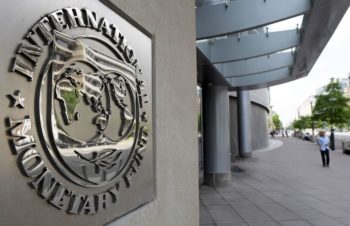
The International Monetary Fund (IMF) on Monday said the world’s economy is still expected to grow at a solid pace this year, but worsening trade confrontations pose serious risks to the outlook.
The IMF’s updated World Economic Outlook (WEO) forecast global growth of 3.9 percent this year and next, despite sharp downgrades to estimates for Germany, France and Japan.
The US economy is still seen growing by 2.9 percent this year, and the estimate for China remains 6.6 percent, with little impact expected near term from the tariffs on tens of billions of dollars in exports the countries have imposed on each other so far.
“But the risk that current trade tensions escalate further — with adverse effects on confidence, asset prices, and investment — is the greatest near-term threat to global growth,” IMF Chief Economist, Maurice Obstfeld said.
The fund warns growth could be cut by a half point by 2020 if tariff threats are carried out.
Although the global recovery is in its second year, growth has “plateaued” and become less balanced, and “the risk of worse outcomes has increased,” Obstfeld said in a statement.
The report comes as US President, Donald Trump, has imposed steep tariffs duties on $34 billion in imports from China, with another $200 billion coming as soon as September, on top of duties on steel and aluminium from around the world including key allies.
China has matched US tariffs dollar for dollar and threatened to take other steps to retaliate, while US exports face retaliatory taxes from Canada, Mexico and the European Union.
“An escalation of trade tensions could undermine business and financial market sentiment, denting investment and trade,” the IMF report said.
In addition, “higher trade barriers would make tradable goods less affordable, disrupt global supply chains, and slow the spread of new technologies, thus lowering productivity.”
The IMF said growth prospects are below average in many countries and urged governments to take steps to ensure economic growth will continue.
The fund said global cooperation and a “rule-based trade system has a vital role to play in preserving the global expansion.”
However, without steps to “ensure the benefits are shared by all, disenchantment with existing economic arrangements could well fuel further support for growth-detracting inward-looking policies.”
Agency Report